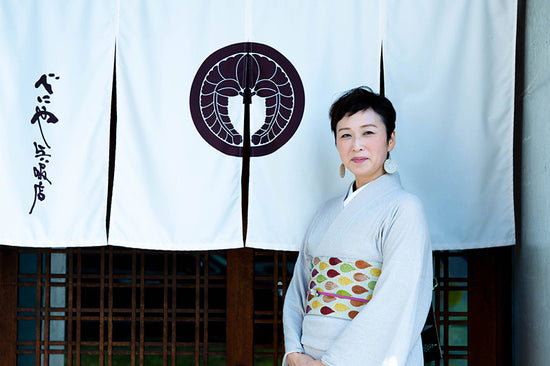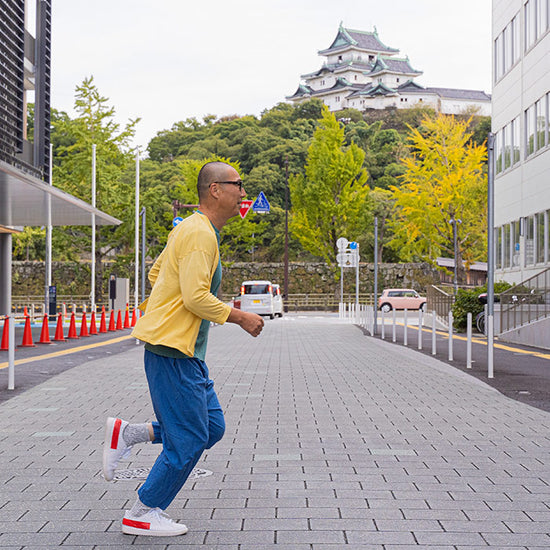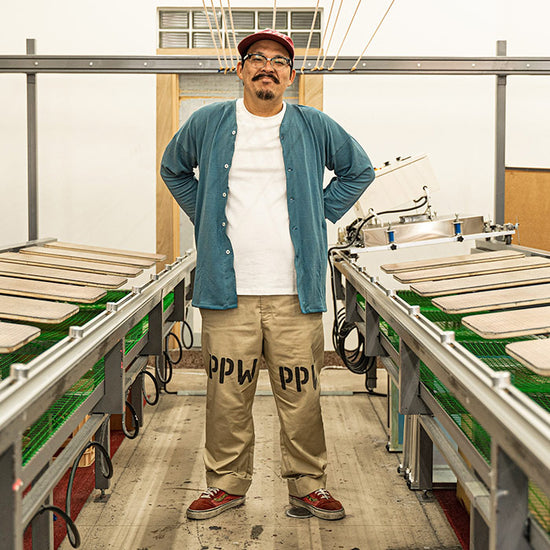Members
NOI開発メンバーです。
-

IRIGUCHI Mayuri (from Gofuku shop)
Born into a family of Beniya Gofuku-ten (founded in 1878), she was raised surrounded with a lot of kimonos from an early age. As she grew older, she found that not many people dressed kimonos as they had used to do. While having worked hard to sell a traditional silk kimono truly hoping to hand it down to posterity as the 5th Wakaokami (proprietress-to-be), she felt that there was nothing that could have been done. In 2018, she launched a new brand called “121E”, which was also the cause of her finding the limit since the brand was mostly recognized to those who already wear kimonos. The main reasons she considers why recent Japanese people do not wear a kimono include: its expensiveness, difficulty of self-dressing, no opportunity, and difficulty of its maintenance. Finally she received an idea of Neo Kimono, which can solve the above points and overturn the concept of traditional kimonos by meeting the person who later became her team member. Through developing the Neo Kimono, which can also be dressed as ordinary clothes, she aspires to pass down the kimono culture for generations. ‘Shuhari’ is what she thinks important in everything. The term describes the stages of learning to mastery, allegedly originated from a Japanese tea ceremony. It is the 3-kanji word being consisted of shu [to protect], ha [to detach], and ri [to leave]. She also expects using knitted fabrics of Wakayama’s local industry for the material can positively reduce some of the elements a traditional kimono may have such as ‘feeling constrained’, ‘getting stiff shoulders’, ‘hard to move around’, and ‘too formal’. -

TSUMURA Shojiro (from Wakayama Ramen restaurant)
“Neo Kimono can overturn the general concepts, create a new culture, and change the sceneries of Japan!” “What do you think if young Japanese people with wearing kimonos go clubbing, drive a car, ride a motorbike, or are surrounded by electric products? Aren’t these chaos in a good sense? That is the world of Anime. But I think it is exactly the Japanese culture. From my perspective, the origins of every Japanese culture are ‘nothing’. Since there was nothing at all, the Japanese people have accepted and absorbed many kinds of cultures, religions, and customs, and continued to evolve. Currently, we are almost isolated from outside due to the coronavirus pandemic. Looking back to the Edo period (1603–1868), Japan in those days adopted the policy of national isolation by choice. The Japanese culture was fruitfully developed during the years, and many of them still remain today. I feel now is the time of transition, when new cultures come into being. And I believe “NOI” can be the one. Wafuku (Kimono, Yukata, Samue) can also be evolved now. I truly hope for your cooperation to make the Japanese culture and sceneries more interesting with us.” -

TSUJIOKA Daiki (from Wakayama’s T-shirt print shop)
“Through this project, I often encounter various emotions, which include ‘once again’.” ‘Once again’ 1 “I once again thought I am a happy man to have joined this project, which has interestingly progressed with lots of fun. Under the circumstance of kimonos (loss of people’s interest), I feel very happy to transmit the kimono culture with having fun together with the project members, who can flexibly change their viewpoints without being stuck in stereotypes.” ‘Once again’ 2 “I once again thought that our members really love Wakayama. I found that they want to do something about Wakayama and transmit the appeal to the world. I am really looking forward to promoting the new value-added kimono “NOI” with these wonderful members.” ‘Once again’ 3 “We are going into the age of individualism increasingly. Which means we will be able to pursue originality more and more. To put it the other way, first come first served. I once again consider that the new era will be like we can reflect our intentions in fashion (kimonos) and enjoy own styles. As the pronominal function, a new sense-added kimono “NOI” will change the times so that I am really excited for that.” “Let’s spread a kimono culture and Wakayama’s wonderfulness to all over Japan and the world.” The Wakayama lover TSUJIOKA Daiki “For an additional note, As individuality will be valued from here on, NOI is perfectly aligned with the times. It actually meets the corporate vision of my company, so I warmed to this project more than ever. It is said that there used to be 350 companies, which related to the knit industry 30 years ago (before the collapse of bubble economy), but there currently are only about 60 to 70 companies in such category. That happens in Wakayama city. It is also said that only Wakayama city has the local companies, which can produce apparel products totally from making fabrics through sewing. That’s why we can create products steadily and consistently. I expect our products will largely satisfy each individual customer, so hopefully our brand name will be recognized widely. Accordingly, we hope to have positive impacts on the traditional brands in Wakayama. That will make “Wakayama” and the Wakayama’s great knit industry be more famous in the world in the near future. What we do in this project is exactly the same to my vision, so I do break my back for promoting our products! Thank you so much everyone!”



